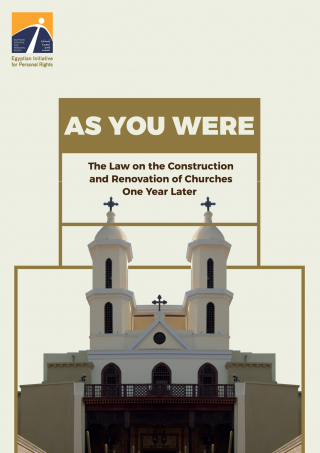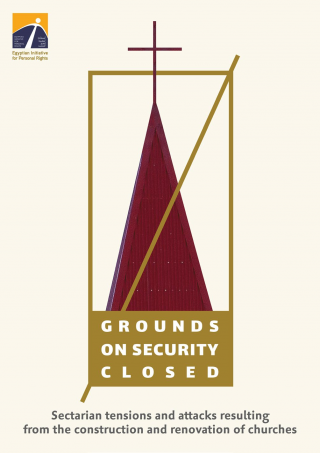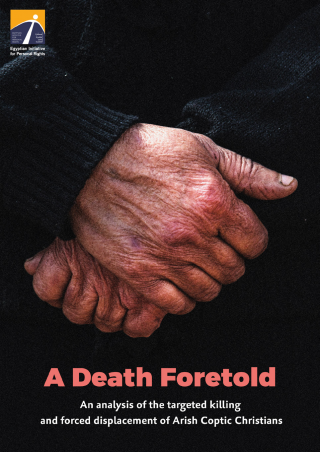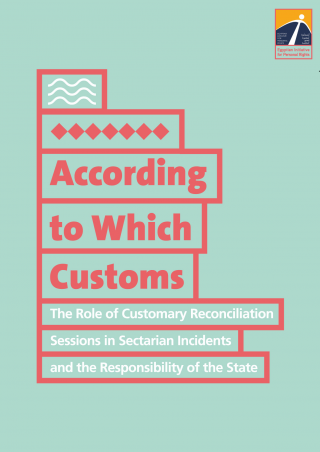The Egyptian Initiative for Personal Rights is deeply concerned about the judgment issued yesterday by the Atfih Misdemeanor Court in the Giza governorate in case no.
Files: Freedom of Religion and Belief
Introduction
On September 28, 2016, Law 80/2016 was adopted to regulate the construction and renovation of churches and their annexes. State officials, parliamentarians, and some sectors of the Christian ecclesiastical leadership heralded the new law as a solution to the long-standing difficulties of building or renovating churches.
The study includes an analytical section and two annexes. The analysis reviews statutes regulating church construction, significant court rulings of relevance, and their impact on the legal status of existing churches and various official licenses. The study then looks at the types and frequency of sectarian attacks linked with the exercise of the right of worship, offering a quantitative analysis of the 74 sectarian attacks seen in Egypt from January 25, 2011 to August 2016. It describes the flashpoints of tension, the profile of attacks and their relationship to political parties or governing forces, and whether patterns changed in tandem with changes in regime.
The study includes an analytical section and two annexes. The analysis reviews statutes regulating church construction, significant court rulings of relevance, and their impact on the legal status of existing churches and various official licenses. The study then looks at the types and frequency of sectarian attacks linked with the exercise of the right of worship, offering a quantitative analysis of the 74 sectarian attacks seen in Egypt from January 25, 2011 to August 2016.
The Egyptian Initiative for Personal Rights has criticized the authorities’ handling of the case of Coptic students who were forcibly displaced from al-Arish in North Sinai last February.
This report documents various ways in which North Sinai Governorate’s Coptic have been targeted. The report covers the past six years until the end of February 2017 and documents intimidating ranging from preventing the practice of religious rites, burning churches, attacking property, kidnap-for-ransom, to forced displacement and identity killings.
EIPR released today a report entitled "A Death Foretold" that addresses incidents of killing and forced displacement of Al-Arish Copts.
The Egyptian Initiative for Personal Rights expresses its deep concern about the House of Representatives’ rushed approval of the law regulating the construction and renovation of churches.
As part of efforts by the Egyptian Initiative for Personal Rights to promote freedom of religion and belief and associated rights—most significantly, to build and renovate churches and religious structures—it is launching a campaign titled “Closed on Security Grounds: for a Fair Law on Church Construction.”
“Whose Customs? The Role of Customary Reconciliation in Sectarian Disputes and State Responsibility”
The study, titled “Whose Customs? The Role of Customary Reconciliation in Sectarian Disputes and State Responsibility,” focuses on the period from January 2011 to the end of 2014.







